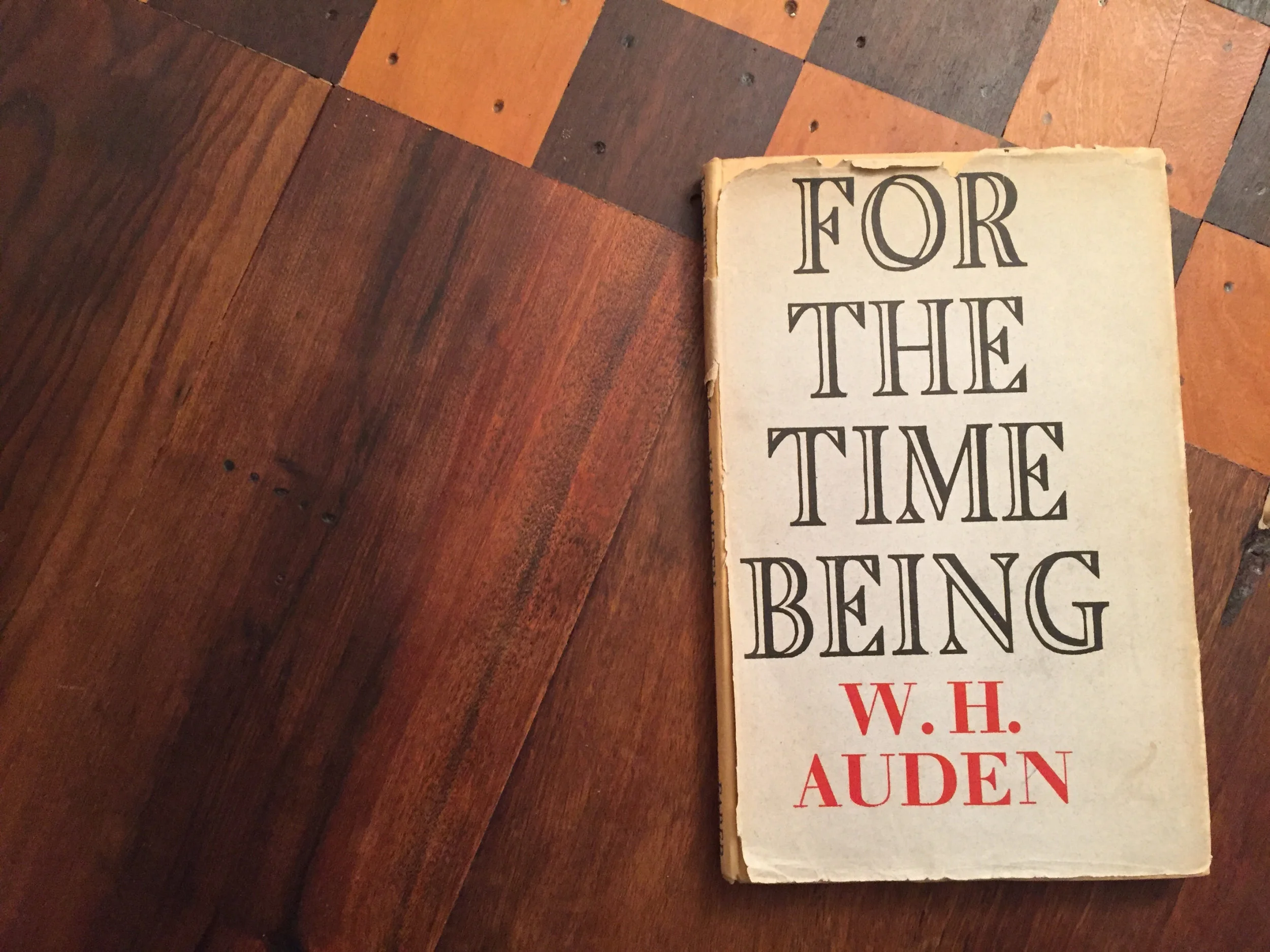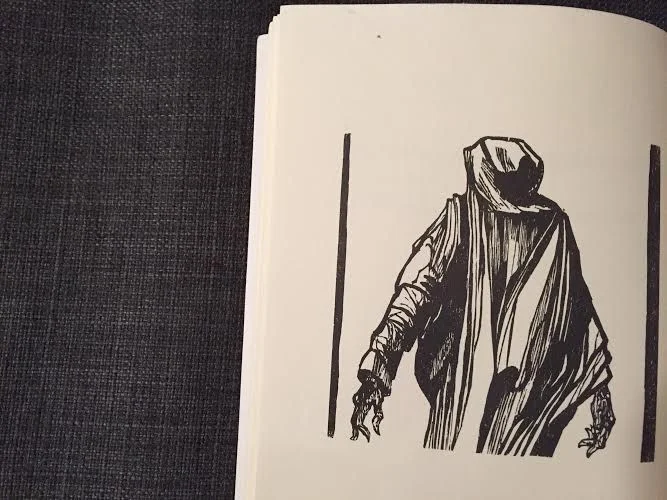Dead Languages and Ghost Towns
The drive into Philipsburg in Montana truly begins when the highway brings you over a mass of land and you see a gray-green hill eerie in the northwest horizon at noon and you get the feeling you might believe in ghosts. The hill is unadorned by anything but a little snow. Philipsburg is nestled in next to the boots of another mountain. If you stand in town, you feel it looming over your neck. Even if you weren’t intending to travel here — there are few draws to a town this far out — you would pull over and try a beer at the new-ish brewery, maybe eat a sandwich for lunch, look into the consignment shops on main street. We intended to look for a mill and a jail, neither of which are there any longer.
When Richard Hugo, the poet who authored The Triggering Town, wrote about Philipsburg he measured the lives of its people by when the jail was built. The more panoptic mill loitered over this dead-end town like the Iron Curtain but it wouldn’t finally collapse. Hugo was a poet of mills and trout fishing. He set an example for his readers of the infinitude in a retired city and the spiritual resolution one finds when gazing into gray hills. It is among the best poems written about the western United States and one of the most redemptive pieces I read in college. At lunch, my friend Dyl and I asked about these landmarks. We’re here from Colorado. Where can we find them? The waitress shook her head. Never heard of them.
“Here’s your chili. Enjoy.”
It had been in the upper 60s back in Colorado Springs and we met the snow with surprise (and near-death) on our route. When we left, Dylan had been wearing loafers and in his luggage he had packed only a single sock. He was now wearing a brown bomber jacket and women’s black hosiery with white polka dots. In the parking lot behind the restaurant he recited “Degrees of Gray in Philipsburg” from memory and we relished in the hallowed place we were. “Let’s get up that mountain, Potter!!”
Montana really was as beautiful as the poems suggested, and like all arrivals the vistas were completely surreal. We had fallen in love with his poems and the places his titles suggested: “The Lady in Kicking Horse Reservoir,” “Driving Montana,” “Letter to Bell from Missoula,” and most of all, “Degrees of Gray in Philipsburg.” In our minds, if you were to go to Greece, reading some Homer, Cavafy or Sappho would enhance your experience. If you go to Montana, you should know a few lines of Richard Hugo by heart.
We had bucketed up most of the mountain on dirt switchback, stopping to take pictures and to look at the wild turkeys and deer. At the end of the road was a hut with its windows lit up. A sign with an expensive engraving in wood read: “No Trespassing”. This witch’s house outside of town that made us gasp satisfied our threshold for fear.
My Subaru, a tan and taupe Outback affectionately called Friar Laurence after the riotous cleric in Shakespeare’s tragedy whose wisdom made Juliet play dead a little too convincingly and Romeo fall into his dagger, had pulled through during last night’s blizzard and black ice, but now we were forced to turn around on a road about as wide as my car is long. Dyl was shuffling through Hugo’s book of collected poems like a deck of cards. Since we couldn’t find anything he wrote about, the book’s name seemed aptly cruel. Making Certain It Goes On. “You know, Potter, I’m not sure this is even the right mountain. He wrote about this town. Where is the mill? ‘Two stacks, high about the town.’ Where are the stacks? What are the stacks?” We looked out the windshield at the snow-appareled mountains and bruise-colored pines. A little too much pressure on the gas and we would imitate the scenery. “I don’t know!” I said. “I feel like he must have come here though. Something about this place fits the poem.” We were trying to travel to another man’s imagination. We were wrestling with a ghost.
We had to turn around.
Some themes of Hugo’s poetry are escaping boredom, discovering friendship, and mastering solitude by calling loss exactly as it is. A landscape sometimes helps assuage these feelings.
What we learned from Hugo, however, is how the landscape also authors the town’s boredom. It walls you inside its valleys. Even a sea can lose its wonder if you don’t imagine what isn’t actually there—Poseidon’s white horses excitedly biting their bridles. Poetry changes your attitude toward beauty, toward the mistakes you’ve made and the mistakes you will inevitably continue to make. In Bozeman, we met a Montana State University student with Richard Hugo’s lines “Say no to yourself, the car that brought you here still runs” tattooed on the inside of her bicep. Against the odds, the Friar still was in pretty good shape. Out on the side of the mountain, as we backed up the car and pivoted degree by degree with care, we realized we were witnessing something rare and old. A life we weren’t accustomed to was coming alive and the questions we sought to answer weren’t giving us easy answers.
Over and over, Hugo’s ghost escaped us. His house in Missoula — we found the street and figured out his house number online — was replaced by an auto repair shop.
But at last, on a cold morning in October we hunched around in St. Mary’s Cemetery, wiping snow from gravestones. “It’s under a tree,” I told Dyl. He looked around the grove of oaks and magnolias and markers. “Potter. Here. I’ve found it.” He was standing over the square plaque.
RICHARD HUGO
1923–1982
BELIEVE YOU AND I SING TINY
AND WISE AND COULD IF WE HAD TO
EAT STONE AND GO ON
The engraving in stone reminded me of the wood sign outside the hut in Philipsburg. Hugo here also was telling us to turn around on the precipice, that we had made a folk hero out of him based on his imagination. We had fallen in love with his poems that have more to do with his obsessions than real artifacts, landmarks or towns. He was obsessed with the English language. Hugo wrote, “Once language exists only to convey information, it is dying.” After spending a little more time with poetry and even with more serious fiction I begin to see what he meant.
Lately as I apply for writing jobs in San Francisco I am warned by employers, “This isn’t glamorous stuff. I guess there is some creativity in the job though.” At this point I hear words like “leverage,” “pipeline,” “reputation,” “acquisition,” and “rapport”. Even their suggestion of glamor misses the mark, at least when I think of the poetry I have written. I hear these words, and ask for the job anyway, and the memories I’ve formed—and the words I’ve learned—in the towns I come from begin to waver. I feel more unsure of myself. Even if I did get the job I’d probably suck at it.
Reading Richard Hugo taps me into the fight of life. I find images and rhythms; I imagine characters that I have never met, in real life or on television, but I know their voices; I gather my own obsessions and feel a little more like a whole person, a little more competent. And when I write, like a maker.
If you are going up to Montana, here’s a good place to get started on your required reading.






